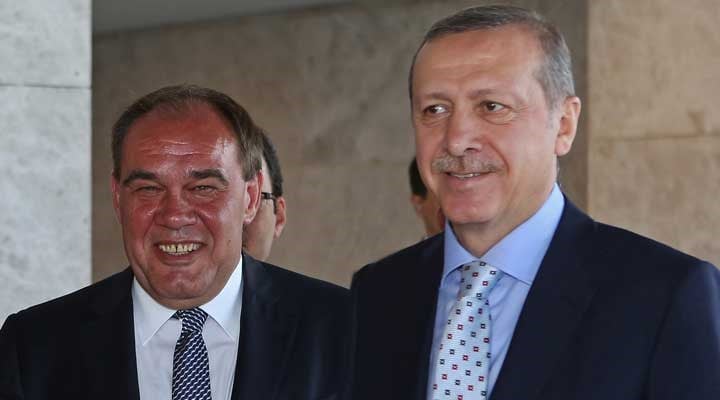Levent Kenez/Stockholm
Turkey’s National Lottery Administration has failed to fulfill its legal oversight duties over state-sanctioned gambling for more than five years, allowing its private handler, a consortium involving one of President Recep Tayyip Erdogan’s close allies, to operate with virtual impunity, according to official audit records and parliamentary testimony.
The failure, revealed in recent discussions before the Turkish Parliament’s State Economic Enterprises Committee on May 28, 2025, centers on the government’s 2020 outsourcing of its lottery and numerical games operations to Sisal Şans, a joint venture between Italian firm Sisal and Turkey’s Demirören Group. The latter is controlled by businessman Yıldırım Demirören, widely known for his close ties to Erdogan and the ruling Justice and Development Party (AKP).
Despite being charged with regulatory control, the National Lottery Administration has not conducted a full audit of the operator’s game data, ticket sales, prize distribution or vendor networks since the handover, according to findings by Turkey’s top financial watchdog, the Court of Accounts.
Under the current system, the Turkish Wealth Fund run by Erdogan holds the lottery license, while Sisal Şans manages operations including the introduction of new games, digital distribution and marketing. However, the law requires that the National Lottery Administration be responsible for supervision, compliance and enforcement.
Yet auditors from the Court of Accounts report that no comprehensive audit has been conducted since 2020. Although the agency claims to have online access to basic financial summaries, critical metadata such as time-stamped ticket sales, regional prize distribution, vendor compliance data and specific draw results have not been reviewed.

Since operations were handed over in 2020, Sisal Şans has introduced dozens of new games and betting formats. But in the absence of effective oversight, which is confirmed by audits from the Court of Accounts, these changes have taken place with minimal transparency or regulatory scrutiny. The prolonged regulatory gap has fueled concern about public exploitation, especially as gambling grows during a time of economic hardship.
Supporters of the privatization argue it has modernized the lottery sector, boosted digital innovation and increased Treasury revenue. In 2024 alone digital games and prize raffles generated more than 5.4 billion Turkish lira ($167 million) in gross sales, contributing 1.35 billion lira ($42 million) in tax revenue to the state.
Critics say those gains come at a steep social cost. “The house always wins,” one opposition lawmaker said during a May 28 parliamentary session. “They are playing with people’s hopes, turning poverty into profit.”
The privatization has also led to what critics describe as a “legal monopoly with political protection,” concentrated in the hands of Demirören, who previously chaired Turkey’s Football Federation and controls media and energy assets aligned with Erdogan’s government.
The contract — awarded without a transparent parliamentary bidding process — has intensified concerns about cronyism in public finance.
Transcript from the parliamentary committee session discussing online gambling and the National Lottery:
A 2022 audit by the Court of Accounts found that the National Lottery Administration does not have access to the detailed data needed for robust oversight. Although officials claim the private operator’s system allows real-time data access, auditors found no meaningful monitoring of key metrics. These include ticket sales by game, hourly or daily revenue, regional prize distribution, vendor performance and compliance, voided sales and canceled transactions. Even draw results and payout logs — technically available through the operator’s system — have not been reviewed, according to the report.
“The Lottery Administration asserts that it can access operator data in real time,” the audit stated. “But this has not been translated into formal analysis, compliance checks or public reporting.”
As a result, the private consortium has operated with little regulatory constraint, raising concerns about unchecked pricing, game design and potentially predatory marketing, especially through digital platforms.
Controversy has also grown over the Demirören Group’s proximity to Erdogan’s inner circle. Demirören’s 2019 acquisition of the lottery operator license followed a series of high-profile deals, including the 2018 purchase of Turkey’s largest media group, widely seen as consolidating pro-government interests.
The Lottery Administration also claims responsibility for combating illegal online gambling, often operated from abroad. In 2023 it reported 168,000 illegal sites to Turkey’s telecommunications authority. That number rose to 232,000 in 2024 and had already reached 65,000 in the first five months of 2025.
Officials say about 86 percent of illegal sites originate from just a few countries — primarily the United States, Armenia, the Netherlands, Germany and Colombia. The rest are spread across nearly 90 nations, underscoring the global nature of the problem and the enforcement challenges.

While authorities have aggressively targeted foreign-based illegal gambling platforms, oversight of the licensed domestic operator remains minimal. No comprehensive audit has been carried out since the 2020 privatization, and the current operator contract has not been revised. The government has yet to introduce stronger regulatory safeguards.
Some lawmakers have proposed parliamentary inquiries, contract revisions and even temporary audits by an independent board. None of these proposals have advanced.
Meanwhile, the National Lottery Administration remains largely symbolic and understaffed, with just 317 employees nationwide, down nearly 50 percent from pre-privatization levels.
A previously prepared indictment by a Turkish court has offered insights into how illegal gambling operations function. These networks use complex, multilayered criminal structures to manage technical infrastructure and launder money. Operations often begin with the purchase of specialized betting software, which is used to run live betting platforms.
Responsibilities are split across teams, with some managing technical systems and live support, others handling marketing and user recruitment, and additional groups coordinating financial transactions.
To disguise the origins of funds, these groups open bank accounts under the names of students, retirees or low-wage earners, promising monthly payments. Transactions are carefully structured to avoid detection, and participants are told to avoid betting-related terms in bank transfers. Funds are routed through multiple accounts and often converted to cryptocurrency to obscure their origin.
This highly organized approach enables illegal gambling rings to spread profits across broad networks while minimizing their risk of exposure.












